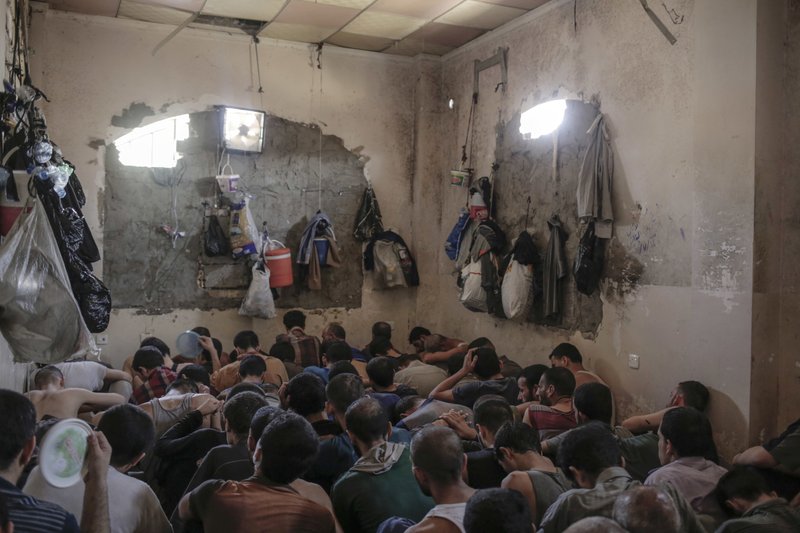MOSUL, Iraq -- Even as the Islamic State group's rule is being torn down in Iraq, the seeds are there for it -- or a successor extremist group -- to rise again one day.
It's a disquieting fact: There are those among Iraq's Sunni Muslim minority who find some good in the group, though they denounce the militants for suffering inflicted during their nearly three-year rule.
The direction of Sunni sentiment can have great significance for Iraq's future. There are fears militants could take root again if Sunnis' lives are not rebuilt or if the Shiites who dominate the government don't end past discrimination and give Sunnis a share of political power.
When the Sunni militants overran much of Iraq and Syria in 2014, the group's dream of an ideal Islamic rule had appeal among some in the community. Iraq's Sunnis in general are deeply conservative and feel oppressed under the majority Shiites. So some saw hope in a group promising to bring morality, uplift Sunni Islam and implement God's law, which many felt would ensure justice.
Instead, the self-declared caliphate turned into a bloody horror. The group committed atrocities on a startling scale, including a systematic network of sex slavery and rape against the Yezidi religious minority and mass killings that targeted everyone, including Sunnis. Prisoners were shot or beheaded, or even set on fire, drowned or blown up with explosives.
Religious police were relentless in punishing the slightest transgressions. Punishments included stoning, beheadings, amputations and whippings. Suspected spies -- including those simply caught with a mobile phone-- and policemen or soldiers were among those dragged into public squares for death. Islamic State members took the lion's share of resources, alienating others struggling to get by.
After the extremists' brutality, some now say they reject anyone promising to bring "true Islam."
"We cannot trust them anymore. We don't want Islamists to rule us," said Mohammed Ibrahim, a government employee in Mosul.
As the militants have been driven out, the Iraqi government has introduced standardized Friday sermons for imams to deliver in the mosques of Mosul and Anbar province, the mainly Sunni region of western Iraq. The policy aims to ensure no militant ideas or hate speech toward minorities are disseminated.
"The so-called caliphate will disappear sooner or later, and what it will leave as its legacy will be a bitter taste for Muslims and non-Muslims alike," said Ibrahim Negm, an adviser to Egypt's grand mufti and the head of a state-backed center tasked with debunking militant ideology online.
But such sweeping denunciations -- by clerics whom opponents often dismiss as tools of government -- can underestimate the methods militants use to gain support.
Thomas Hegghammer, director of terrorism research at the Norwegian Defense Research Establishment in Oslo warned that eventually "nostalgia" over the Islamic State group could arise.
"People will say we had a caliphate, but our enemies destroyed it," he said. "Muslims who were too young at its heyday and could not join it will romanticize it ... It will for a long time be like the notion of a 'lost caliphate.'"
A Section on 08/28/2017

